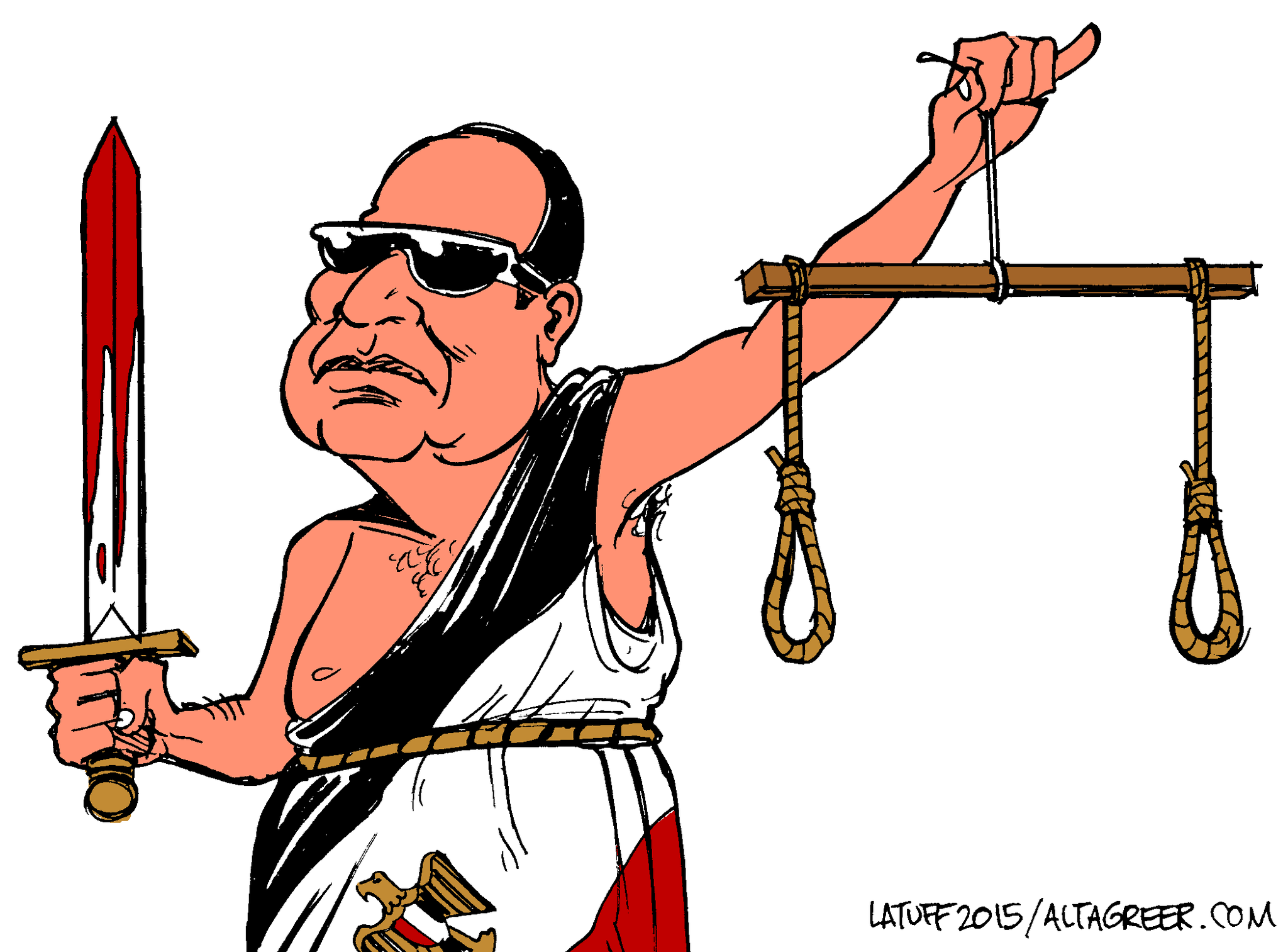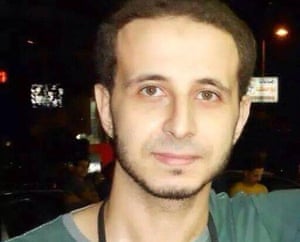
The Guardian
Link
One night in late February this year, security officers burst into a north Cairo apartment belonging to the family of a 27-year-old lawyer named Karim Hamdy. Brandishing guns, they took Hamdy, still barefoot, to a police station in a nearby neighbourhood.
After two days in detention, Hamdy was dead. Medical officials who examined his body reported signs of torture, including a beating that had left him with ten broken ribs and bleeding in the brain.
Hamdy was one of dozens of Egyptians to die in custody in recent years, but as a lawyer his killing illustrates what rights monitors say is the unravelling of the rule of law and a heightened sense of impunity among the security forces since the military removed president Mohamed Morsi from power in 2013.
Torture by security forces did not cease after the uprising that toppled president Hosni Mubarak in 2011, nor following the election of Morsi, but rights organizations have documented an upsurge in torture under two years of military-backed rule.
“We see an escalation of torture and a maintenance if not an increase of impunity, and a ruthlessness in using torture, a carelessness,” said Aida Seif El Dawla, executive director of the al-Nadeem Center for the Rehabilitation of Victims of Violence, a Cairo-based organization that helps torture victims. “It gives the impression that there is a sense of ‘We’ll get away with it.’”

In a photo taken of him before his death, Karim Hamdy has a youthful face with a closely trimmed beard, curly hair, a tie and a red sweater vest. He was a respected figure in theEgyptian Lawyers Syndicate and was known for defending clients who had themselves suffered abuses at the hands of the police.
In a video available on YouTube, Hamdy’s mother said she was at home, sitting on the sofa with her son when the security officers rapped on the metal door of the apartment. “We opened the door and they rushed in,” she says in the recording. “They grabbed him by his clothes and said, ‘Come, Karim,’ as if they knew exactly who he was.”
The security men, apparently members of the National Security agency, accused Hamdy of participating in an unauthorized protest, and a weapons charge. His interrogators eventually compelled him to confess on video.
When police turned him over to prosecutors, Hamdy denied the charges and said he had been forced to confess under torture, according to an investigation of the incident by Amnesty International. He had been slated to return to the prosecutor’s office again the following day, but he never appeared. Lawyers went to search for him at the police station where they were told he had died.
A photo taken after his death shows Hamdy’s lifeless body after it was released by the security forces. His torso is visibly bruised. A medical report whose content was reproduced by Egyptian newspapers indicates the damage done to his body during the 48 hours he was in custody. Ten of his ribs were broken and there was bleeding inside his skull.
Hamdy’s story also reflects the shifting contours of politics in Egypt in the two years since Morsi’s removal. Hamdy died in Matariya, a working class neighbourhood in north Cairo that became a rallying point for Morsi’s supporters after the security forces killed hundreds of protesters in Cairo’s Rabaa Al-Adawiya and Nahda squares in August 2013. The mass killing and ensuing political clampdown flushed protest out of Cairo’s central neighbourhoods, but demonstrations persist in more marginal districts.
Matariya has been a flashpoint since the 2011 revolution, in part because of residents’ outrage over police abuses. On January 28, 2011,a monumental day of protests and pitched battles with police, demonstrators attacked the Matariya police station. Before and after the uprising, the station had a reputation for brutality. In the words of Abdelrahman Gad, a researcher at the Egyptian Commission for Rights and Freedoms, “If someone goes into that police station, everyone is afraid for them.”
Hamdy was one of two lawyers to die following apparent police torture in the span of three months in Matariya, and among nine deaths following arrests in the same neighbourhood since April 2014, according to Amnesty International.
The two lawyers’ deaths are part of a recent pattern of deaths in custody in the Matariya police station. One of them was Ezzat Abdel Fattah, a 46-year-old officer with the Ministry of Finance, who died after he was arrested following an altercation with his neighbours in May 2014. A medical report showed showed several broken ribs and bleeding in the brain, signs of a severe beating.The other lawyer was Imam Afifi, 63, who died after being arrested during one of the neighbourhood’s frequent anti-government demonstrations. The circumstances of his detention are in dispute. A Cairo security official anonymously quoted in Egyptian media said Afifi was beaten by a crowd of civilians who then turned him over to police. Other lawyers reported that their colleague was beaten inside the police station. A medical report obtained by the Guardian said Afifi suffered a head trauma while in custody. A CT scan indicated that Afifi, like Hamdy, had bleeding in the brain.
In a rare indictment of members of the security forces, Egypt’s public prosecutor’s office charged two members of the National Security agency over Hamdy’s death. The pair, a lieutenant colonel and a major, are now on trial. But the trial is taking place in secret as a result of a gag order by Egypt’s state prosecutor. The lawyers who are tracking the case say the gag order could be part of a cover-up.
“We have enormous doubts about the performance of the public prosecutor’s office, dating back to the Mubarak era,” said Malek Adly, a lawyer with the case with the Egyptian Center for Economic and Social Rights. “The way the authorities are hiding this case raises a lot of concerns.”

No comments:
Post a Comment